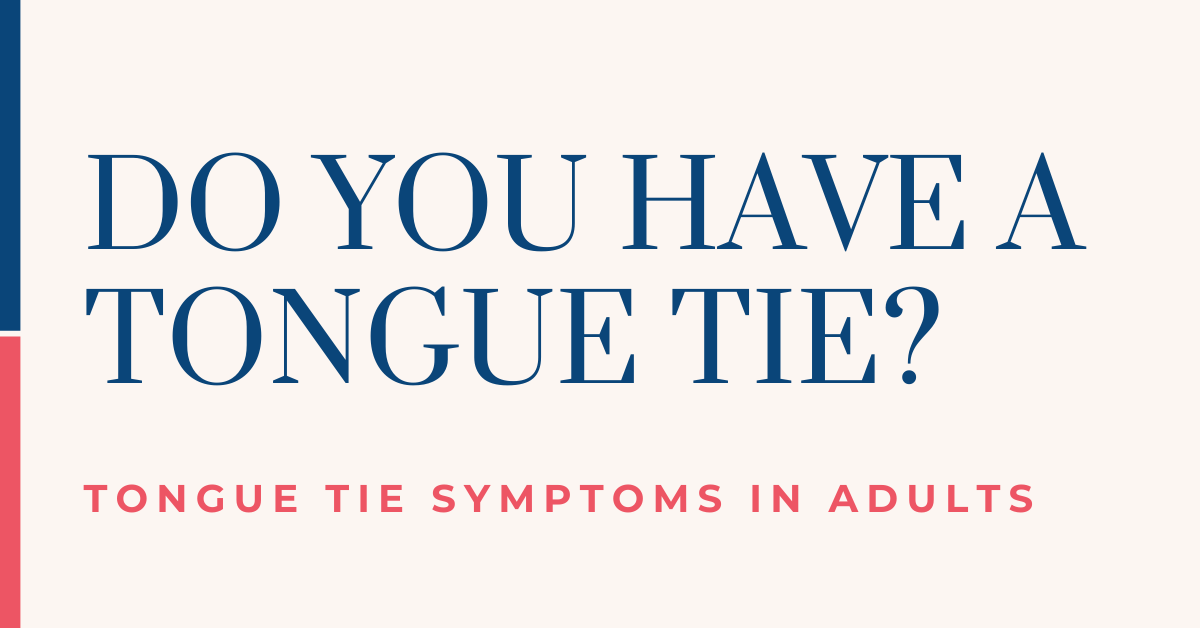You may be more familiar with tongue tie issues in newborns and young children, often impeding the ability to breastfeed successfully. It is estimated that between 4 to 10% of babies are born with some degree of a tongue tie. Many of these children are never diagnosed and treated for their ankyloglossia. As an adult, those with ties may experience seemingly unrelated health conditions and difficulties. We’re going to dive deeper into how a tie may be creating other health issues and why, even as an adult, it might be a good idea to have your tongue tie looked at and potentially corrected through a frenectomy.
A tongue tie is a small band of tissue that connects the tongue’s underneath to the floor of the mouth. This tie can be more pronounced when it is closer to the tip of the tongue. Depending on the location of the tie, movement of the tongue can be more restricted. Many adults have a minor or moderate form of ankyloglossia, leading them to not suspect the tie as being an issue or hindrance. Interestingly though, several common ailments have been linked to having a tongue tie.
According to Mayo Clinic, there are 3 main indications of a tongue tie, aside from the obvious visual evidence. The other indications are the inability to move the tongue easily to touch all upper teeth, inability to extend the tongue beyond the row of bottom teeth, and/or a tongue tip that has a heart shaped appearance. Aside from these, an adult sufferer may have low tongue muscle tone and thrust, and tend to be a picky eater and mouth breather.
When the tongue cannot freely move, it can be the root cause, or a contributor, to the following illnesses or ailments:
- Frequent headaches
- Jaw pain including TMJ disorder
- Shoulder and neck pain
- Teeth Grinding
- Sleep related issues like snoring and sleep apnea
- Digestive issues
- Cavities and gum disease from increased saliva
Your headaches and neck pain may not be (at least all) stress related. It might in fact be more due to your tongue being restricted! When the tongue is pulled forward in a restrictive manner, the head follows that same form, causing muscle strain on the neck and head.
Tongue ties are corrected through a surgery called a frenectomy. Typical frenectomies are done with a scalpel and may take several weeks to heal. We here at The TOT Spot Tongue Tie and Airways Center utilize what we think is a better way to treat tongue ties – through a laser frenectomy instead. With laser treatments, a patient’s ankyloglossia is corrected faster and with less discomfort. Healing times are also typically quicker with laser vs traditional scalpel methods.
If you are suffering from any of the common issues mentioned above and think it may be related to a tongue tie, look for a TOT trained specialist for a functional assessment in your area. Our very own Dr. Ann Bynum is a nationally renowned D.D.S who specializes in pediatric dentistry and laser frenectomies, and has been treating tongue ties for over 6 years in the greater Greenville, SC area. To schedule a consultation, please fill out our online form or call our office at (864) 297-5585 today.

